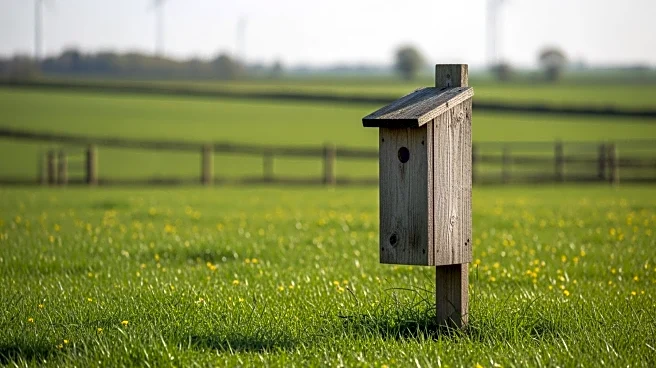What's Happening?
Farmers in the south of England are preparing for potential bird flu outbreaks following the government's implementation of new containment rules. A mandatory housing order has been issued, requiring anyone with more than 50 birds to keep them indoors
to mitigate the spread of avian influenza. This measure aims to reduce the current high infection rates. Jerome Challen, a farmer with 12,000 hens in Maidenhead and Taplow, expressed grave concerns, equating a potential outbreak to a catastrophic event. In the past month, there have been 26 cases of highly pathogenic avian influenza H5N1 on UK farms, necessitating the culling of entire flocks when outbreaks occur. The government hopes these measures will curb the spread of the virus.
Why It's Important?
The potential spread of bird flu poses significant risks to the poultry industry, particularly as the festive season approaches, when demand for poultry products like turkey and geese is high. Farmers are anxious about the economic impact of potential outbreaks, which could lead to mass culling and financial losses. The situation underscores the vulnerability of the agricultural sector to disease outbreaks and the importance of effective biosecurity measures. The government's intervention is crucial to protect both the poultry industry and public health, as avian influenza can have severe consequences if not contained.
What's Next?
Farmers and industry stakeholders will closely monitor the effectiveness of the new containment measures. The government may need to adjust its strategy based on the evolving situation. Poultry farmers are likely to remain vigilant, especially as colder weather increases the risk of disease spread through migrating birds. The industry will also be preparing for the Christmas season, hoping to avoid disruptions that could affect supply and demand. Continued communication between the government and farmers will be essential to manage the situation effectively.
















